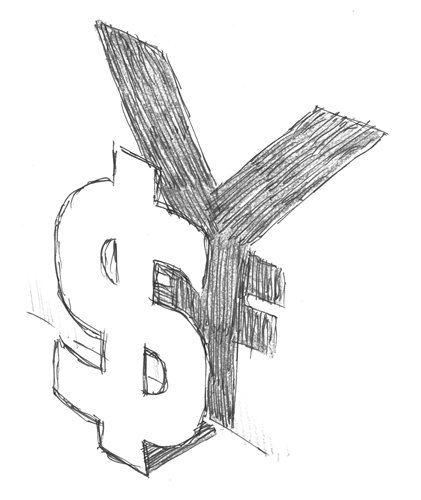COMMENTS / EXPERT ASSESSMENT
US rate hikes won’t impact China monetary policy

Illustration: Peter C. Espina/GT
Hours after US Federal Reserve increased its benchmark interest rate, the People's Bank of China (PBC), the country's central bank, raised short-term interest rates on Thursday.
Generally speaking, there is no need to over-interpret the March rate hike by the Fed, which had been widely expected and whose impact had already been digested prior to the official announcement. Also, the effect of the Fed rate hike on China's monetary policy is limited, and China's central bank appears to have determined its monetary and exchange rate policies based on domestic factors instead of external ones.
While the timing of the PBC's move seems to be following in the Fed's footsteps, the PBC was quick to explain that the rate increases were due to its own money supply situation. As it said in an online statement on Thursday, "Flexibility in rates is conducive to deleveraging, deflating bubbles and risk prevention."
The central bank raised the reverse repo rate in open market operations and the rate on medium-term lending facility (MLF) loans rather than hike the benchmark policy rate. The MLF is a supplementary policy tool that the central bank uses to manage medium-term interest rates in the banking system and money markets. By using such structural monetary tools, the PBC aims to adjust the capital market structure. That is, the central bank is looking to increase finance costs so as to drive excessive liquidity in the financial market into the real economy. In this sense, the PBC's move was not predicated by the Fed's rate hike, which is in fact a result of China's own plan on its financial market.
It should be pointed out that the reason why the PBC didn't choose to raise its benchmark interest rate is because a rate hike doesn't suit the country's monetary policy and economic conditions. China is shifting to a prudent and neutral monetary policy stance this year, according to the Central Economic Work Conference. Neutrality means that the central bank is taking a wait-and-see position toward whether to hike or lower the policy rate. Meanwhile, given the slowdown in February's consumer price index (CPI), a rate hike may further aggravate deflation. Statistics from the National Bureau of Statistics showed that China's CPI slowed to 0.8 percent in February from a year earlier, and that the CPI for the first two months of the year rose merely 1.7 percent.
With quite a lot of asset bubbles amid relatively high macroeconomic stability, China's monetary policy is different from the US. The Fed raised its interest rate due to a strengthening job market and rising prices, but the Chinese economy may face more risks if the policymakers hastily follow the Fed's move to increase the benchmark rate instead of making decisions based on its economic development.
In regards to the impact of the Fed's move on the yuan, the Chinese currency will certainly face depreciation pressure under the accelerated schedule of the Fed's rate increases this year. Nevertheless, a substantial depreciation in the yuan against the dollar is unlikely considering the expected improvement in the Chinese economy in 2017. Moreover, the Chinese yuan is not freely convertible, but is still subject to the regulatory intervention. Therefore, it could be expected that the yuan's exchange rate against the dollar will maintain general stability, accompanied by mild depreciation this year, which will help release or mitigate China's currency risk to a certain extent.
It is undeniable that the Fed has a more mature and advanced theory about its monetary policy adjustment, while the PBC is at a more exploratory stage. But the PBC has gradually learned to make its own decisions in terms of the direction for monetary policy, instead of being affected by external factors. What's more, the central bank was quick to give an explanation about its move this time, signaling an active response to questions and the anticipation of avoiding unnecessary misunderstandings.
The article was compiled by Global Times reporter Wang Jiamei based on an interview with Tan Yaling, head of the Beijing-based China Forex Investment Research Institute. bizopinion@globaltimes.com.cn

